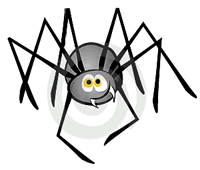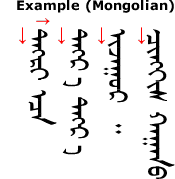
In The Hobbit, Bilbo uses the words attercop, lazy lob, crazy cob, and old tomnodd as insults he’s attacked by giant spiders in Mirkwood. I guessed that they are alternative names for spiders, but I thought I’d check.
Attercop is a word for spider from the Old English átorcoppe, from átor/attor (poison) and coppe, from cop (top, summit, round head), or copp (cup, vessel). It is apparently still used in North Yorkshire, though is considered old fashioned. It can also mean a peevish or ill-natured person. Possibly related words include the Norwegian edderkopp(er) (spider) and the Danish edderkop(per).
Lob is another extinct word for spider from the Old English lobbe/loppe, of unknown origin.
Cob is another extinct word for spider that features in cobweb, and is probably cognate with the Flemish cobbe/coppe (spider) and Westphalian cobbe (spider).
I can’t find any information about tomnodd. Do you know where it might come from?
Other Old English words for spider include gangewifre (‘a weaver as he goes’) spíðra, wæfergange, gongelwæfre and spigt.
Source: OED, Word Wide Words, Wiktionary, Old English Tranlsator

